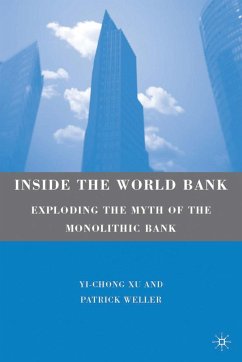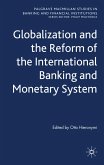This book challenges the common view that the World Bank can be seen as a single player in world politics. Its critics credit it with common views and an over-riding neo-liberal philosophy, which it imposes on unwilling countries. We argue that the Bank, far from being a unitary actor, is fundamentally plural, internally fragmented and dispersed, with cascading chains of delegation, authority and controls, and with considerable discretion delegated to the staff. There are management dilemmas that ensure internal variations of opinion and approach are an inevitable part of its activities. Bank staff are important players in shaping the operation of the Bank; they have scope for creativity in the selection of the development programs and projects the Bank undertakes in the client/partner countries. To understand the Bank it is necessary to appreciate how it works and what impact the staff can have.
Hinweis: Dieser Artikel kann nur an eine deutsche Lieferadresse ausgeliefert werden.
Hinweis: Dieser Artikel kann nur an eine deutsche Lieferadresse ausgeliefert werden.







